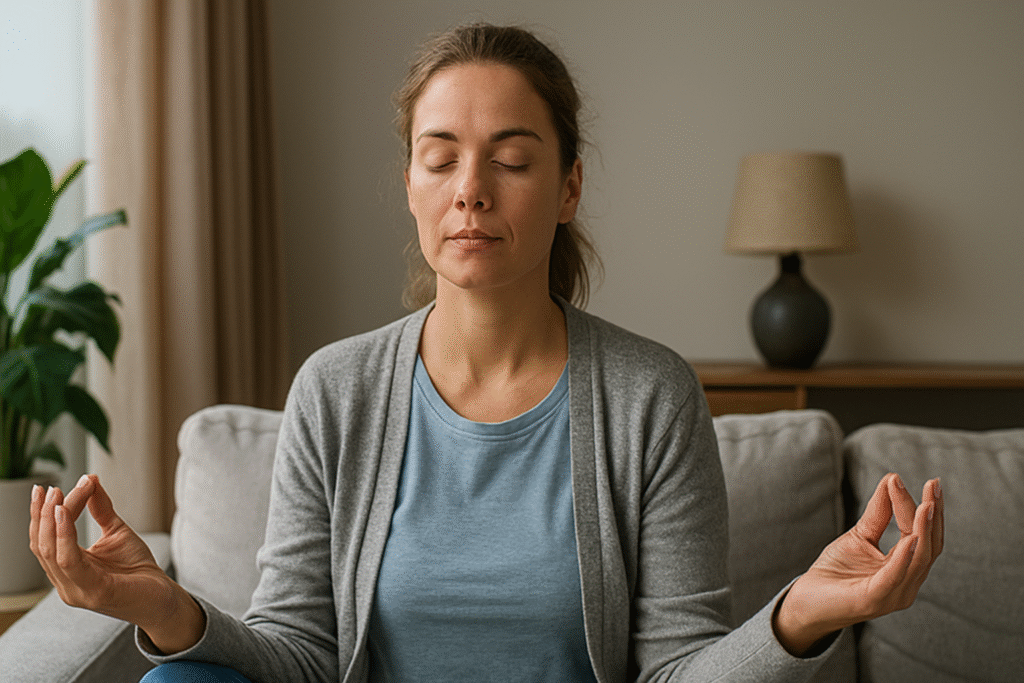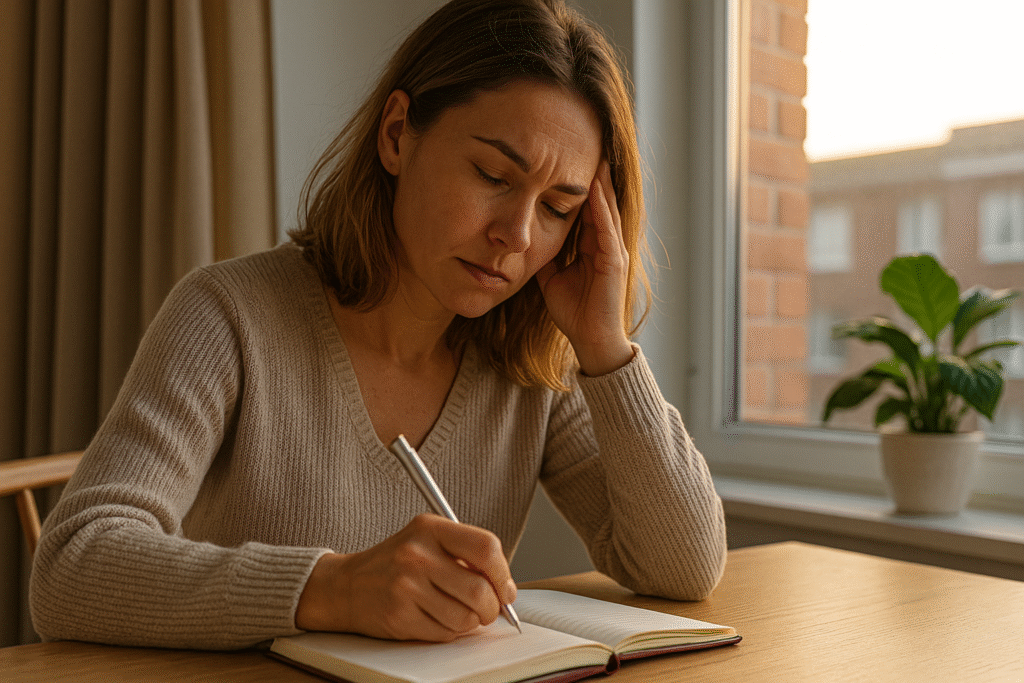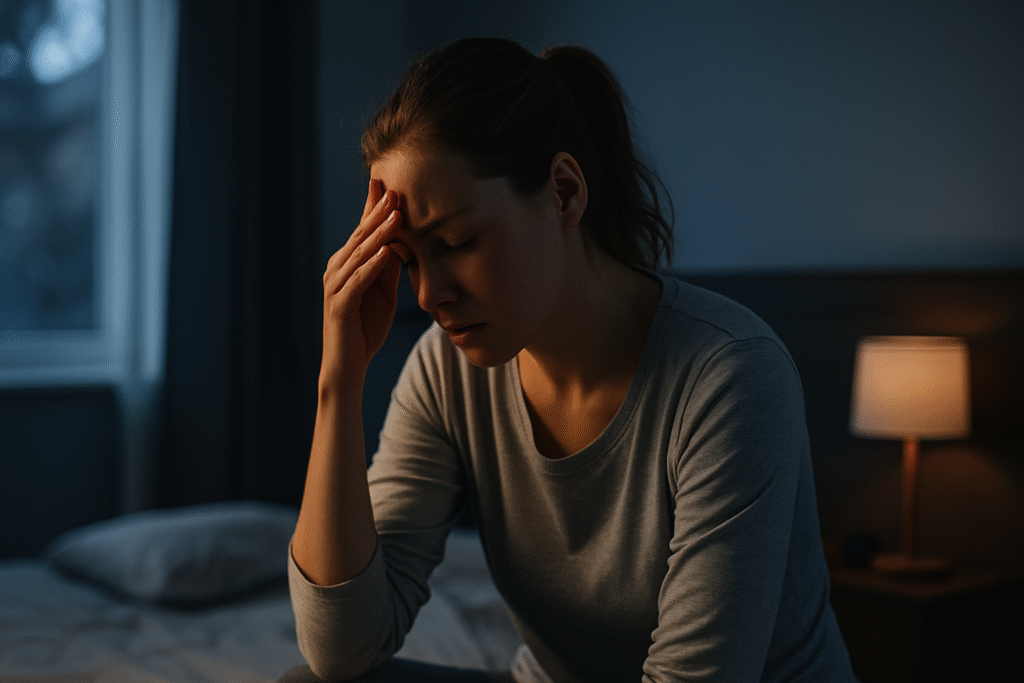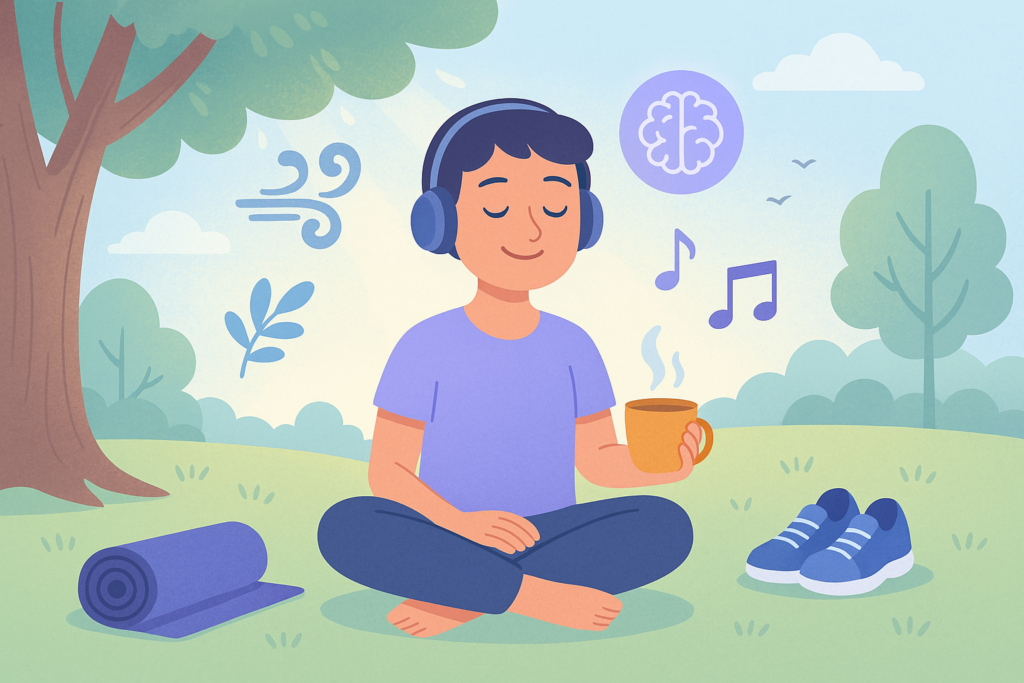You know the feeling—it’s Sunday evening, dinner’s done, and instead of winding down, a knot tightens in your stomach. Your thoughts spiral to emails, deadlines, early alarms, and an overwhelming sense of dread creeps in. This isn’t just in your head. The phenomenon, aptly named the Sunday Scaries, affects millions of Americans every week, disrupting rest and robbing people of a peaceful weekend closure.
According to the American Institute of Stress, over 70% of workers regularly feel anxiety before returning to work on Monday. While common, Sunday Scaries are not inevitable. This article dives deep into what causes them, how they affect your brain and body, and—most importantly—what you can do to reclaim your Sundays and start your week mentally empowered. Whether you’re seeking relief through mindfulness, lifestyle changes, or evidence-based techniques, we’ve got strategies rooted in neuroscience and practical life skills to help you beat the Sunday Scaries for good.
Understanding the Sunday Scaries: Why They Happen
Most people experience the Sunday Scaries as a vague sense of anxiety or unease that begins in the late afternoon or evening on Sunday. But to truly resolve this recurring issue, we need to understand what’s driving it.
The Neurobiology Behind Sunday Anxiety
The brain perceives upcoming uncertainty—like the stress of a new workweek—as a threat. This triggers the hypothalamic-pituitary-adrenal (HPA) axis, releasing cortisol and adrenaline. Over time, this creates a conditioned response: Sunday equals stress. This phenomenon is not merely psychological; it’s a neurochemical loop that reinforces anxious behavior patterns.
In fact, studies from the National Institute of Mental Health (NIMH) reveal that anticipatory anxiety activates the amygdala, the brain’s fear center, well before the stressful event begins. That means your anxiety starts before your week does—without you even realizing it.
How Modern Work Culture Fuels Weekend Anxiety
Thanks to digital devices and work-from-anywhere expectations, the boundaries between work and rest have dissolved. Sunday evenings often morph into “prep time” for Monday: checking your calendar, previewing your inbox, or finishing tasks left undone. This pressure contributes to what psychologists call “work anticipatory stress.”
One major culprit? Email-checking behavior. A 2023 study in Occupational Health Psychology linked weekend email checking to elevated cortisol levels and disrupted sleep on Sunday nights.
The Role of Lifestyle and Sleep Debt
Late nights, alcohol consumption, and poor sleep hygiene during the weekend only amplify pre-Monday stress. When your circadian rhythm is misaligned due to weekend behaviors, the Sunday Scaries hit harder. Sleep deprivation directly impairs the prefrontal cortex—your brain’s rational decision-maker—making emotional regulation more difficult and stress responses more extreme.
Even a two-hour delay in Sunday bedtime can shift your circadian rhythm enough to impair cognitive function on Monday morning—triggering stronger anxiety and emotional volatility.
Psychological Triggers You Might Overlook
Sometimes, the trigger isn’t work at all—it’s emotional. Sunday evenings can resurface unresolved feelings like loneliness, lack of fulfillment, or the realization that you didn’t use your weekend as planned. These psychological undercurrents, often subconscious, add weight to Sunday anxiety.
Sunday Scaries stem from a complex interplay of brain chemistry, lifestyle habits, and emotional factors. Understanding the biological and cultural causes is the first step to regaining control and breaking the anxiety loop.
Science-Based Strategies to Rewire Your Sunday Mindset
Beating the Sunday Scaries requires more than just distraction or wishful thinking. Long-term relief comes from neuroscientific techniques, behavioral restructuring, and emotional regulation tools. Here’s how to shift from anxious anticipation to grounded preparation—without sacrificing your Sunday peace.
Practice Mindfulness to Calm the Fear Circuit

One of the most powerful ways to quiet anticipatory anxiety is through mindfulness meditation. By training your attention to stay present, mindfulness dampens activity in the default mode network (DMN)—the brain system responsible for overthinking and rumination.
A growing body of research from institutions like Harvard and the NIH shows that 8 weeks of mindfulness meditation can shrink the amygdala and improve emotional regulation. Even brief sessions on Sunday evening can lower cortisol levels and restore a sense of internal safety.
Try a 10-minute guided practice like the ones in our Mindfulness Meditation guide to reset your mind and ease tension before bed.
Use Gratitude to Shift Cognitive Bias
Sunday anxiety often centers on negative “what-ifs.” But when you engage in gratitude journaling, you interrupt negative loops and activate brain regions associated with optimism and motivation.
In a study published by Frontiers in Psychology, participants who practiced daily gratitude had higher activation in the medial prefrontal cortex—critical for emotional control and decision-making. Practicing gratitude can literally rewire your brain to perceive Mondays more positively.
Explore deeper insights in our article:
Gratitude and the Brain: How Thankfulness Transforms MoodCreate a Sunday Ritual That Signals Safety
Your brain thrives on cues. If Sunday nights are currently filled with work reminders and vague dread, it’s time to design a new ritual that fosters security and closure. This could include:
- A warm bath with magnesium salts
- Aromatherapy with lavender or bergamot
- A screen-free hour with light reading or journaling
- Herbal teas known for their calming effects, like chamomile or lemon balm
Establishing these routines sends safety signals to your nervous system, effectively rewiring the HPA axis to remain calm on Sundays.

Shift Your Internal Dialogue with Cognitive Restructuring
Cognitive Behavioral Therapy (CBT) techniques are clinically proven to reduce anxiety by teaching individuals to challenge distorted thinking patterns. Common Sunday Scaries thoughts like “I won’t be able to handle the week” or “I didn’t get enough done” can be reframed into empowering alternatives:
- Instead of: “Monday will be overwhelming.”
- Try: “I have tools to manage my workload, and I can ask for support if needed.”
This kind of restructuring activates the prefrontal cortex, reducing fear-based responses and promoting rational thought.
CBT isn’t just for clinical settings. Self-guided cognitive restructuring tools are now widely accessible through apps and online programs—and are clinically validated for managing generalized anxiety.
Supplement Smartly: Nutrients That Support a Calm Mind
Certain supplements can help modulate your stress response—especially when integrated with lifestyle changes. Look for adaptogens and nootropics that support brain health and lower anxiety.
One excellent example is Moringa, a natural adaptogen known to balance cortisol and improve sleep quality. It also contains high levels of magnesium and tryptophan, both essential for serotonin synthesis and nervous system balance.
For a deep dive into its benefits and quality considerations, see our review:
Moringa Magic Review: Adaptogenic Relief for Modern StressBy practicing mindfulness, engaging in gratitude, creating calming rituals, and using science-backed supplements, you can gradually retrain your brain’s response to Sundays and break the anxiety cycle.
Designing Your Ideal Sunday: Structure, Boundaries, and Purpose
Overcoming the Sunday Scaries isn’t just about what you avoid—it’s also about what you intentionally build. Creating a structured and meaningful Sunday helps prevent anxiety from creeping in. When your day has rhythm, purpose, and boundaries, your brain feels safer and more prepared for the week ahead.
Start with a Sunday Morning Anchor Routine
Rather than sleeping in late and starting the day disoriented, set a consistent wake-up time—even on weekends. A grounded morning routine gives your body clock stability, improves energy levels, and mentally anchors your day. Elements to consider include:

- A short walk in sunlight (boosts serotonin and reinforces circadian rhythm)
- A nourishing breakfast high in healthy fats and protein
- A few minutes of journaling or intention setting
A 2022 study published in Nature Mental Health found that individuals with stable morning routines reported significantly lower anxiety scores—even on Sundays.
Define Time Blocks for Rest and Renewal
Time blocking isn’t just for productivity—it’s also a tool for peace. By assigning clear “zones” in your Sunday for rest, errands, planning, and enjoyment, you avoid the all-too-common last-minute chaos that triggers anxiety.
Suggested Sunday Flow:
- 9am–12pm: Physical activity + meal prep
- 12pm–2pm: Social or family connection
- 2pm–4pm: Errands or light chores
- 4pm–6pm: Personal hobbies or creative time
- 6pm–8pm: Wind-down ritual + reflection
Unstructured weekends can increase the perception of “time loss,” a cognitive trigger linked to regret and anxiety. Scheduled pleasure is proven to be more emotionally restorative.
Set Boundaries with Digital and Work Access
Digital intrusion is a key driver of Sunday Scaries. Notifications, work messages, and doom-scrolling can reignite stress and disrupt recovery. Setting digital boundaries is essential.
Try This:
- Use “Focus” mode on your phone from 5pm onward
- Avoid checking email until Monday morning
- Disable Slack/Teams notifications on Sunday
According to a 2023 study in Journal of Occupational Health Psychology, individuals who set firm tech boundaries on Sundays were 40% more likely to report a peaceful start to the week.
Write a one-sentence mantra like: “I don’t work on Sundays—I recover so I can work better on Mondays.” Repeat it when tempted to open work apps.
Add Purpose-Driven Activities That Align With Your Values
One of the less obvious causes of the Sunday Scaries is existential dissonance—the feeling that your time isn’t being used meaningfully. Combat this by carving out time for activities that align with your core values. These could include:
- Volunteering or acts of service
- Deep reading or skill-building
- Connecting with nature or spiritual practices
- Strategic reflection on your life goals
When your Sunday includes even one activity tied to meaning, your brain registers the day as valuable rather than wasted—shifting the emotional tone.
By intentionally designing your Sunday around structure, boundaries, and personal purpose, you transform the day from a stress trigger into a launchpad for emotional resilience.
How to Prepare for Monday Without Triggering Anxiety
One of the trickiest aspects of managing Sunday Scaries is finding the balance between getting ready for the week ahead and not obsessing over it. If you’re too relaxed, Monday feels chaotic. But if you start over-planning, your Sunday becomes a second Monday. The key is to establish low-stress prep habits that bring calm, not cortisol.
Use a “Brain Dump” Method for Cognitive Relief
Often, anxiety builds because our brains are juggling too many “open tabs.” A Sunday evening brain dump helps offload mental clutter without diving into full-blown work mode.
How to do it:
- Spend 10–15 minutes writing down everything on your mind—tasks, deadlines, errands, worries.
- Sort into categories: Must Do, Can Wait, Delegate.
- Store it in a digital task manager or notebook.
This practice activates the executive function of your brain (prefrontal cortex), reducing the amygdala’s stress signals. It creates cognitive closure, which research from Psychological Science shows is essential for restful sleep.
Set Gentle Micro-Goals Instead of Ambitious Agendas
Rather than listing a huge to-do list for Monday, try setting three key micro-goals that are realistic and impactful. This gives your brain a sense of control and competence—important antidotes to anxiety.
Examples:
- “Reply to 3 priority emails”
- “Start the client report outline, not finish it”
- “15-minute walk during lunch”
By keeping goals bite-sized, you reduce overwhelm and increase the likelihood of success—which builds confidence across the week.
Studies show that people who start their week with small wins experience a 31% productivity boost and report higher emotional well-being throughout the day.
Prepare Your Environment, Not Just Your Schedule
Your physical space has a profound effect on your mental state. Use Sunday evening to set up your environment for clarity and ease:
- Lay out Monday’s outfit (decision fatigue starts early)
- Clean your workspace (mess equals stress)
- Prep your breakfast or lunch (nutrition affects mood)
These small steps send powerful psychological cues that “you’ve got this,” reducing anticipatory stress. Environmental psychology confirms that predictability and order enhance emotional regulation.
Implement a Pre-Sleep Ritual That Supports Deep Rest
High-quality sleep is your best defense against Monday anxiety. Yet, Sunday nights are notoriously restless for many. To counteract this, establish a pre-sleep routine that promotes melatonin production and parasympathetic activation:
- Dim lighting after 8pm
- No screens 60 minutes before bed
- Light stretching or breathwork
- Herbal teas with L-theanine or valerian root
Try pairing a calming herbal tea with 10 minutes of mindfulness journaling—a technique that enhances GABA activity and improves sleep onset latency.
Preparing for Monday doesn’t have to mean stressing about it. Gentle planning, micro-goals, environmental setup, and sleep optimization can help you step into the week with confidence and calm.
When Sunday Anxiety Signals Something Deeper: When to Seek Help
While Sunday Scaries are common, persistent or intense anxiety every weekend may be a sign of a more serious underlying issue. Recognizing when your symptoms go beyond situational stress can help you take proactive steps toward healing—and potentially change your life trajectory.
Signs Your Sunday Scaries Might Be Clinical Anxiety
Occasional pre-Monday nerves are normal. But when the dread becomes chronic, physically impairing, or emotionally paralyzing, it may reflect Generalized Anxiety Disorder (GAD). This condition affects millions of adults, often without diagnosis, and manifests through persistent worry, sleep disturbances, and somatic symptoms that escalate over time.
Watch for these red flags:
- Physical symptoms (tight chest, nausea, racing heart) that recur weekly
- Sleep disturbances every Sunday night, despite good habits
- Intrusive thoughts that spiral and disrupt daily functioning
- Avoidance behavior—canceling plans or skipping work
- Feelings of hopelessness or panic
According to the National Institute of Mental Health (NIMH), GAD affects nearly 6.8 million adults in the U.S., and many don’t seek help until symptoms disrupt their professional or social life.
The Link Between Burnout, Depression, and Sunday Anxiety
In some cases, intense Sunday anxiety is a symptom of career misalignment or burnout. You might feel emotionally detached, chronically tired, or question the meaning of your work. These signs overlap with atypical depression, where emotional numbness and weekend dread replace sadness.
Burnout has three primary dimensions (as per WHO classification):
- Emotional exhaustion
- Depersonalization (feeling distant or cynical about work)
- Reduced sense of personal accomplishment
Burnout is now classified by the World Health Organization as an “occupational phenomenon” with direct links to mental health disorders like depression and anxiety.
How to Talk to a Therapist About Sunday Dread
Seeking help doesn’t mean you’re weak—it means you’re aware. If your Sunday Scaries escalate, consider talking to a licensed therapist, especially one trained in CBT or mindfulness-based therapy.
Effective ways to start the conversation:
- “I’ve noticed I get anxious every Sunday night, and it’s starting to affect my sleep and mood.”
- “I feel overwhelmed before the week even starts, even when nothing specific is wrong.”
- “I want to explore if my work-related stress is part of a larger mental health issue.”
Therapy can offer clarity, tools, and emotional relief, and even a few sessions can change your Sunday narrative.
Online therapy platforms now offer weekend sessions and chat-based options—ideal for addressing Sunday anxiety before it escalates into Monday burnout.
Building a Long-Term Mental Health Strategy
If your Sunday Scaries are rooted in deeper patterns, consider creating a comprehensive wellness plan. This may include:
- Regular therapy or coaching
- Lifestyle adjustments (diet, sleep, movement)
- Mindfulness or spiritual practice
- Career reevaluation or boundary setting
- Social support systems
One of the most transformative shifts is realizing: you don’t have to accept Sunday dread as normal. With the right tools and support, you can shift from reactive to resilient.
When Sunday anxiety feels overwhelming, persistent, or emotionally numbing, it may be time to seek help. Therapy, lifestyle changes, and awareness of burnout can lead to deep and lasting emotional freedom.
Conclusion
The Sunday Scaries may feel inevitable, but they’re not. They are a signal—your brain and body asking for safety, clarity, and intention. By understanding the neuroscience behind anticipatory anxiety, adopting strategic routines, and applying mindfulness, gratitude, and self-regulation techniques, you can shift your Sunday from stress to serenity. And when deeper issues are at play, seeking professional support is a courageous and life-changing step.
Rewriting your Sundays isn’t just about easing anxiety—it’s about taking back ownership of your time, your mindset, and your mental well-being.
Main Takeaways
- Sunday Scaries are a real neurochemical response to uncertainty and work-related stress.
- Mindfulness and gratitude practices are scientifically proven to reduce anxiety.
- Structured Sundays with clear boundaries help regulate mood and boost energy.
- Low-pressure preparation for Monday prevents anticipatory stress from escalating.
- Seek professional support if Sunday anxiety becomes chronic or emotionally impairing.
🔗 Further Reading
Explore More on Mental Clarity and Emotional Balance



